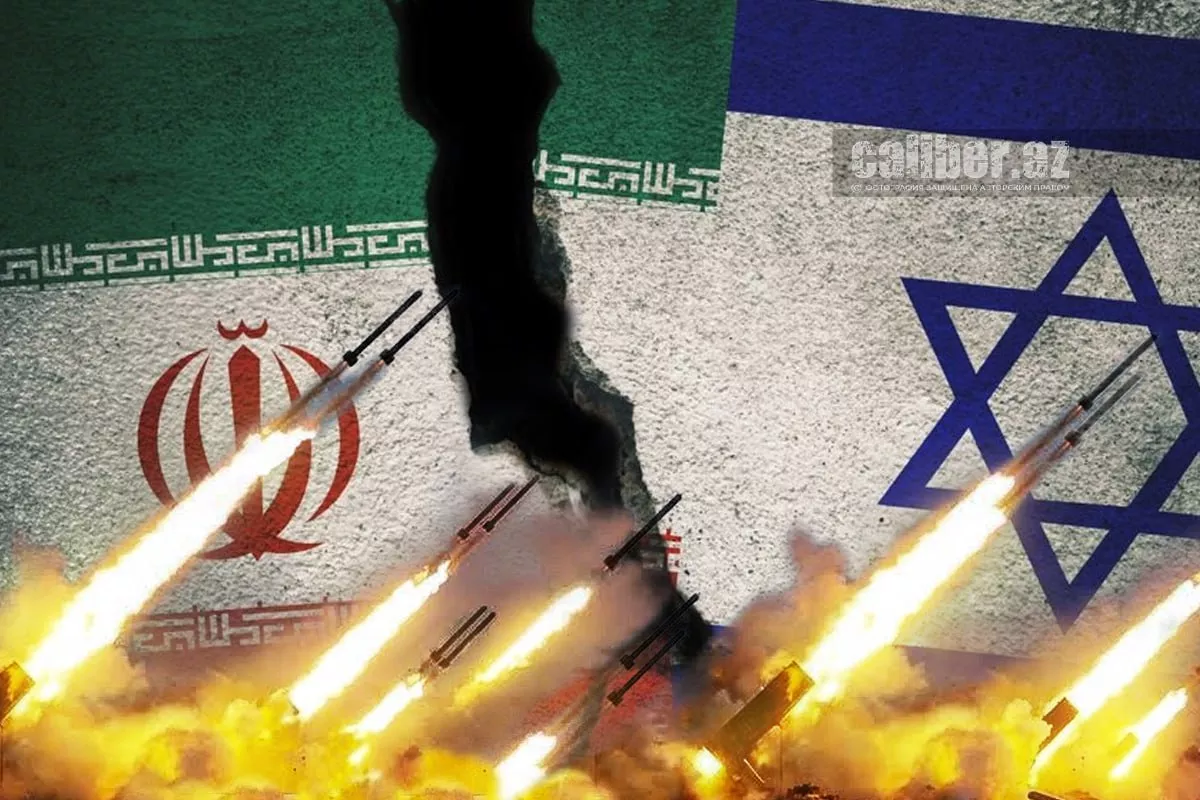Iran’s Axis of Resistance vs. US-Israel alliance Struggle for Middle East Dominance
Who will ultimately control the Middle East: the Iranian coalition, known as the Axis of Resistance, which includes factions in parts of Yemen, Iraq, Syria, and Lebanon, or the United States in partnership with Israel? Each side employs distinct tactics in this ongoing conflict.
Iran is betting on asymmetric warfare against the US's strategic ally, Israel. Tehran's goal is not to achieve victory over Israel in a conventional tank or air battle (in which they stand no chance of winning due to Israel's overwhelming superiority in technology and weapon quality), but rather to engage in a prolonged war of attrition. To this end, it is necessary to ensure the "unity of the resistance arenas," meaning a never-ending process of coordinated guerrilla and missile strikes against Israel, utilizing pinprick attacks or more serious operations from Hezbollah, the Yemeni Houthis, Syrian and Iraqi Shiite militias, and Palestinian movements such as Hamas and Islamic Jihad.
An example of such strikes was the Hamas raid from the Gaza Strip on October 7, 2023. On that day, Hamas's special forces unit, Nukhba, managed to deal a significant blow to Israel in a border confrontation, killing 300 military personnel and 900 civilians, and capturing around 20 settlements and a division headquarters for three days. However, Hamas's attack had other objectives as well. Israel responded by pushing Hamas back and launching an offensive on Gaza. This led to the richest and most influential Arab country, Saudi Arabia, backing away from normalizing relations with Israel at that moment, as pursuing normalization during another Arab-Israeli war would have been politically inconvenient.
On the other hand, the rocket strikes from Hezbollah exemplify a war of attrition, having depopulated a 10-kilometer-wide strip along the border with Lebanon, forcing 60,000 Israeli citizens to flee the area.
As Iran's Supreme Leader Ali Khamenei stated, the goal of the Axis of Resistance is to exhaust Israel both militarily and economically, while prompting the emigration of its population. This is not a foolish strategy, considering that a significant portion of Israel's population consists of immigrants from other countries. Many individuals are inclined to leave if they feel insecure. Currently, about one million Israelis reside in the United States and Europe.
Furthermore, the area targeted for missile strikes in northern Israel can potentially be expanded. This poses a threat to a million Israelis, notes Israeli security expert Amos Harel. The emergence of one million refugees could lead to an economic collapse, as the total population of Israel is only 10 million people.

A key element of Iran's strategy is that Iran itself remains on the sidelines. The primary combatants are its allies — the Houthis, Hezbollah, and Hamas — rather than Iran itself. However, there are times when Iran is compelled to deviate from this approach, particularly when Israel kills Iranian military personnel and diplomats. Recently, in the suburb of Dahieh in Beirut, an airstrike targeted and killed Hezbollah leader Hassan Nasrallah and Major General Abbas Nilforushan of the Islamic Revolutionary Guard Corps (IRGC), who was commanding the corps' forces in Lebanon. In retaliation, Iran launched approximately 200 ballistic missiles at Israel. Nevertheless, Tehran typically avoids direct confrontation with Israel, preferring to stay on the sidelines and maintain its safety.
However, Israel's ruling elite is not lacking in intelligence, and they have their own extensive plans regarding Iran.
First, as Naftali Bennett, the former Prime Minister of Israel, stated, it is possible to strike not only at the tentacles of the octopus (proxies like Lebanese Hezbollah) but, above all, to target its head — that is, to strike at Iran itself. If the Iranian regime's goal is to remain on the sidelines and safe during the conflict, Israel's objective is to maximize the costs that Iran will incur for its actions.
Second, as noted by Israeli analyst Jonathan Spyer, an expert on the Iranian regime and its proxies, Iran and its satellite states (Iraq, Syria, Lebanon) have a vulnerability: their economy.
In Iran itself, corruption has reached unprecedented levels. About five per cent of the population, connected to the elite IRGC, controls the majority of the economy through a network of state and private companies. This group has monopolized industry and finance, thriving on massive government subsidies, effectively at the expense of the rest of the population.
Another destructive factor is the American sanctions, which have severed the country from investments and modern technologies, significantly reducing its ability to export oil. Despite possessing the second-largest natural gas reserves in the world, Iran is forced to purchase gas from Russia due to a lack of the necessary extraction technologies.
The result is an inflation rate reaching 40-50 per cent per year, and according to the World Bank, about 30 per cent of Iranians live below the poverty line, with nearly 40 per cent hovering around it. The ruling elite is becoming increasingly isolated, while the country is rocked by mass protests — workers are striking, and students and pensioners are demonstrating. The destruction of the economy and the constant rise in prices are accompanied by an ideological collapse of the Islamic Republic. According to official surveys, about 70 per cent of Iranians support the separation of religion from the state. This is nothing less than a verdict on the religious state established by the Supreme Leader.
Additionally, there is a deep ethnic divide in Iran — Azerbaijanis, Kurds, Arab Khuzestanis, and Baluchis (together constituting about half of the population) are dissatisfied with the central government’s allocation of resources, which primarily favours the development of Persian-speaking provinces. This has resulted in disparities in wealth among regions, which, combined with ethnic divisions, creates dangerous tensions.

Against this backdrop, Israel can choose from a variety of strategies to influence Iran. One strategy, which has been particularly discussed lately, involves striking at Iran's oil industry. Despite the sanctions, oil remains a crucial source of foreign currency (with 90 per cent of oil sold to China). Israel could target Khark Island, where oil terminals are located. It may also strike the port of Bandar Abbas, which handles the majority of other export-import operations. By hitting several key infrastructure points, Israel could attempt to inflict critical damage on Iran, undermining its economy.
Another strategy could involve targeting the highest military-political leadership of Iran. After Israel successfully killed Ismail Haniyeh, the leader of Hamas, who was a highly protected official guest in Tehran, this does not seem far-fetched. The Mossad clearly has operatives within the Iranian regime.
The ultimate aim of both strategies is to create chaos within Iran, potentially sparking an uprising among the country’s discontented population. This scenario is plausible given the rising tide of strikes and protests that have erupted regularly since 2018.
In the event of such an uprising, as Iran expert Ali Alfoneh suggests, the Israeli Air Force could play a similar role to that of the Western coalition's air forces during Libya’s Arab Spring in 2011. Back then, British and French warplanes targeted Gaddafi’s forces, aiding the rebels and ultimately leading to their victory.
Perhaps this is what Israeli Prime Minister Benjamin Netanyahu had in mind when, in a video message, he stated that Israel is not against the Iranian people, but against the regime, adding that the liberation of the Iranian people from their rulers could come much sooner than many expect.
Of course, it’s entirely possible that none of these plans will succeed—public life and politics are notoriously unpredictable. What is certain, however, is that only time will reveal whether it will be Israel’s or Iran’s strategy that ultimately proves most effective.








